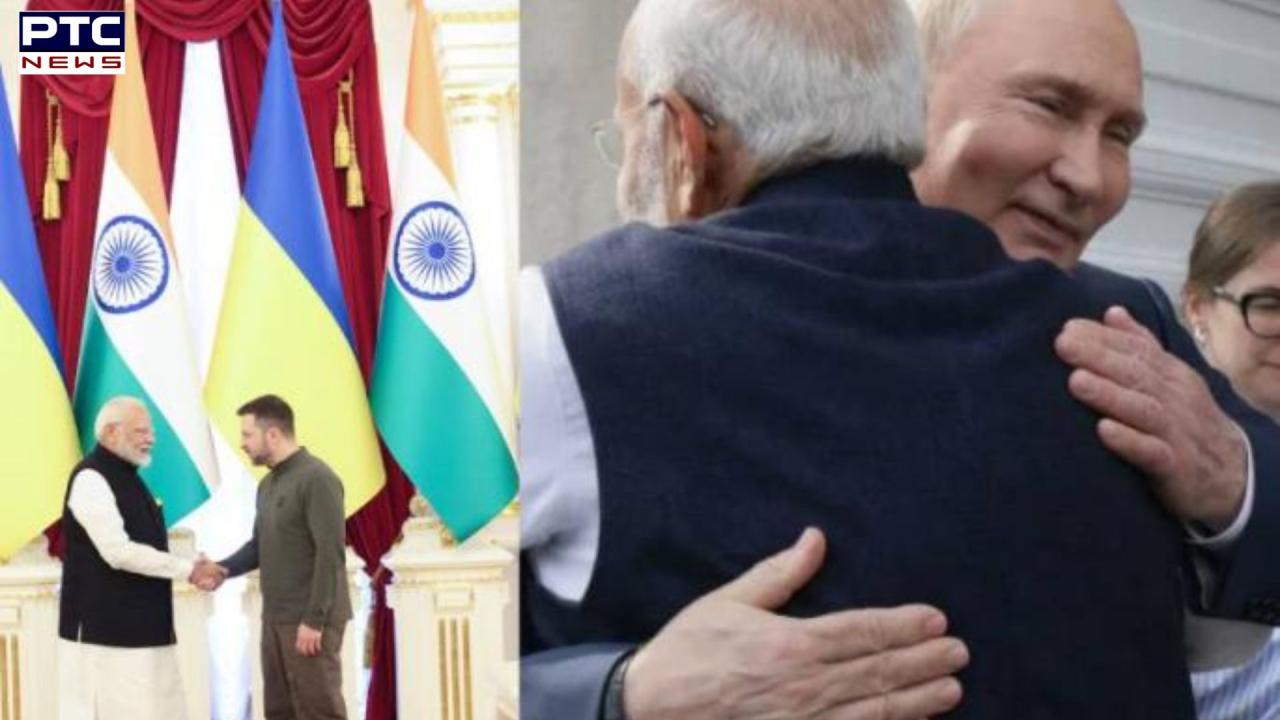

Modi's diplomatic balancing act boosts hopes for India as a peacemaker amid Russia-Ukraine conflict
PTC News Desk: In the midst of the ongoing conflict between Russia and Ukraine, Prime Minister Narendra Modi has emerged as a pivotal figure on the global stage, demonstrating India's unique position as a potential peacemaker. His recent diplomatic maneuvers, including a historic visit to Ukraine—the first by an Indian prime minister in three decades—underscore his efforts to balance complex international relations.
Modi’s visit to Ukraine, coupled with his interactions with Russia, has ignited discussions both within India and internationally about his ability to manage relationships with conflicting global powers. His diplomatic strategy, which involves maintaining strong ties with both Russia and Ukraine, has been seen as a testament to his skillful navigation of global politics.
India’s relationship with Russia dates back to the Cold War, highlighted by the Indo-Soviet Treaty of Peace, Friendship, and Cooperation signed in 1971. Russia has been a key defense partner for India, providing military equipment and technology over the decades. Conversely, Ukraine, after gaining independence from the Soviet Union, has also been a significant partner in areas such as defense, education, and agriculture.
Balancing these relationships amid the Russia-Ukraine conflict has been a considerable challenge. While Western nations, led by the U.S., have urged countries to distance themselves from Russia, India has maintained a neutral stance, advocating for dialogue and peace. The Modi government has continued its trade relations with Russia, including purchasing crude oil despite Western sanctions, demonstrating India’s commitment to strategic independence.
Modi's visit to Ukraine was a symbolic gesture reflecting India’s dedication to peace and its readiness to engage with all involved parties. His warm receptions in both Russia and Ukraine underscore India’s role as a bridge between East and West.
The visit has sparked significant commentary on social media. The phrase "Papa Ne Vaar Rukwa Di," previously coined during the Lok Sabha Elections, has resurfaced with a new context. Supporters of Modi praise his diplomatic efforts, calling him a "global leader" and applauding India’s strengthened role as an ambassador of peace. Critics, however, question the tangible impact of the visit and whether it represents more than a public relations exercise.
Modi’s engagement with both Russia and Ukraine, combined with his emphasis on dialogue, positions India as a potential mediator in the conflict. India’s historical non-alignment policy and current neutrality lend it the credibility to act as a mediator. Modi’s personal rapport with leaders from both countries enhances India’s ability to facilitate negotiations.
Modi’s diplomatic balancing act reflects India’s strategic independence. Despite deep ties with Russia and economic interests, Modi has successfully maintained positive relations with the United States, avoiding the pitfalls of aligning too closely with any single power.
Interestingly, the opposition, particularly the Congress party, has remained largely silent on Modi’s visit. This silence is notable given their previous criticism, including the use of the "Papa Ne Vaar Rukwa Di" jibe during elections. The lack of opposition commentary may indicate an acknowledgment of the delicate diplomatic balance Modi is achieving, making it challenging to criticize without appearing unpatriotic or unsupportive of India’s global position.
Also Read: Barry Stanton's X account suspended over racist posts on Indians, users criticise Musk
- With inputs from agencies
